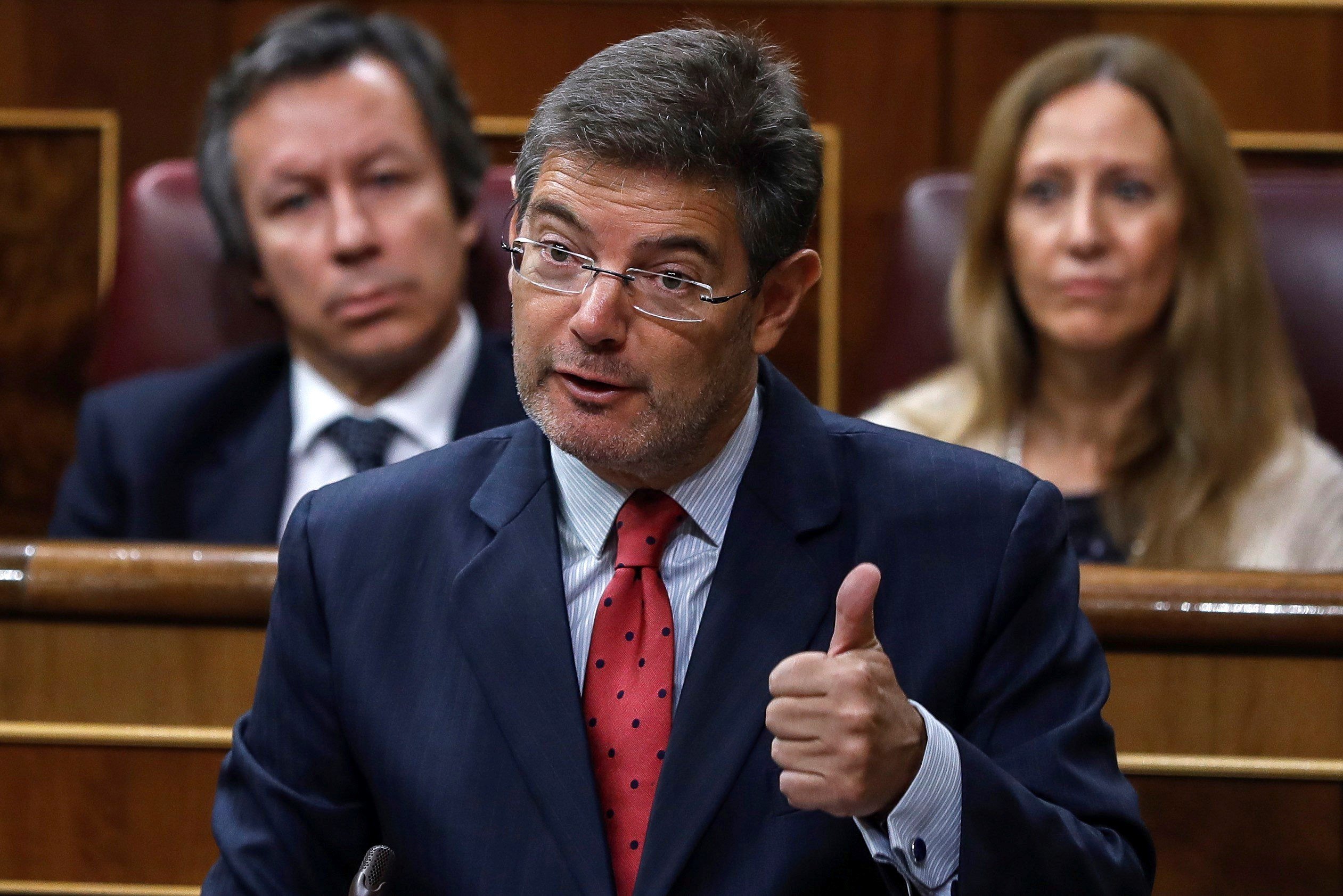They didn't say sorry, nor will they. The Spanish government has no intention of apologising for the thousand people injured by police repression during the 1st October independence referendum apart from the central government's delegate to Catalonia, Enric Millo saying days later that he regretted the situation, before justifying the actions of the Spanish police.
This was made perfectly clear by the Justice minister, Rafael Catalá, in the Congress in response to PDeCAT (Catalan European Democratic Party) deputy Jordi Xuclà, who criticised the PP (Popular Party) minister for still not having said sorry and pushed him to do so believing that the events had involved "absolutely disproportionate behaviour, improper of a democracy".
Catalá did not hold back in his response, saying: "If someone has to say sorry it's those who encouraged the social confrontation and conflict". He introduced his answer saying "we all want to know the medical report, the development of the recovery of those injured that day because, for sure, there were hundreds and hundreds of them", as if joking directly about those injured by Spanish police that day.
It didn't end there, however. The Justice minister continued sarcastically that "it would be good to know how they are and if they have recovered from their multiple injuries, if they don't mix up which hand had capsulitis, as in some example which we've heard of and so, so many cases of manipulation that took place during those days".
"Independence supporter" attacks
Directly accusing independence supporters of "having created this atmosphere in Catalonia", he turned the tables on Xuclà's question, saying that it was the pro-independence side that has to "apologise to all citizens" because, he said: "I don't know a single supporter of the constitution who has gone to threaten, coerce or individually targeted any independence supporters but I do know many independence supporters who have intimidated judges, graffitied businesses and homes and cut off electricity and energy supplies to public servants like judges and prosecutors".
Catalá's response in the Congress. English subtitles available.
According to Spanish news agency EFE, Catalá said that these attacks involve painting the doors or fronts of houses, "although the victims haven't publicised them". He also defended the intervention in Catalan autonomy via article 155 of the Spanish Constitution as having been "prudent, proportional, reasonable and adequate given the gravity of the situation" given the "greater threat" which, in his opinion, Spanish democracy had suffered.

